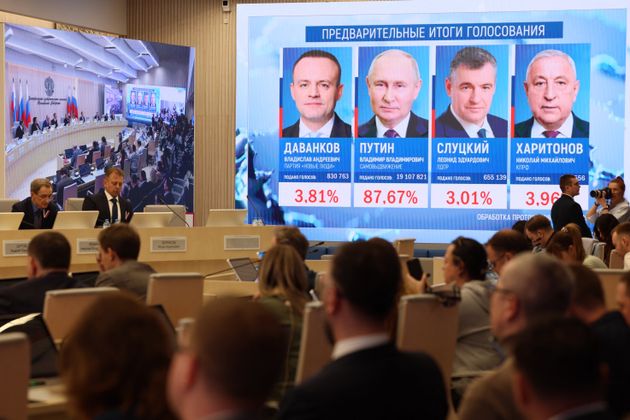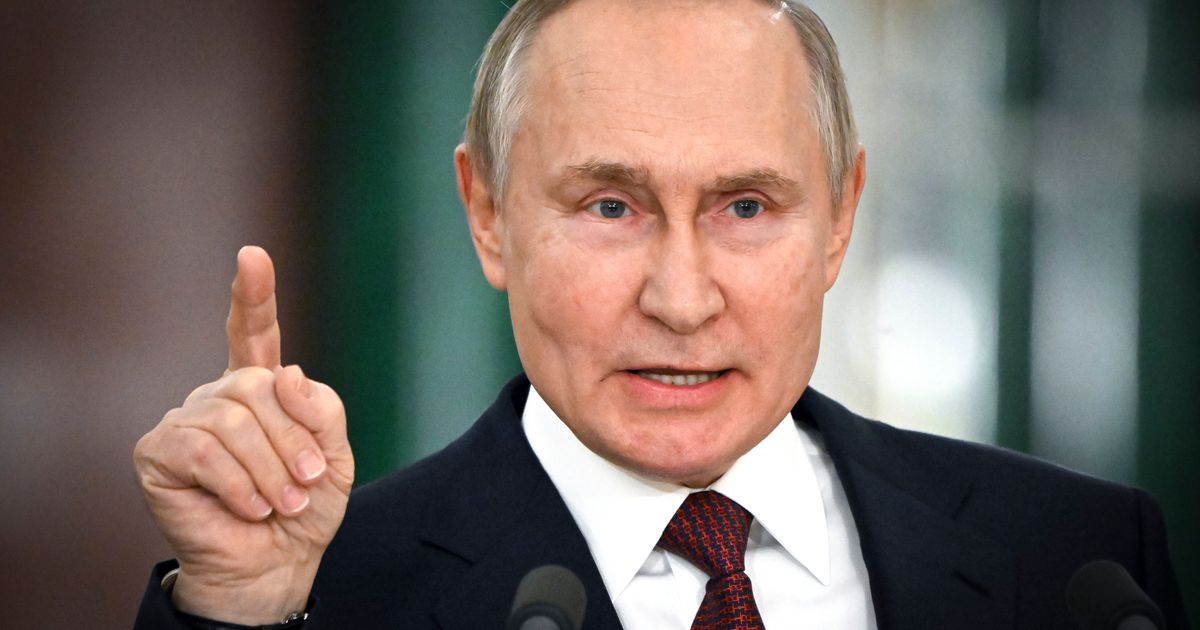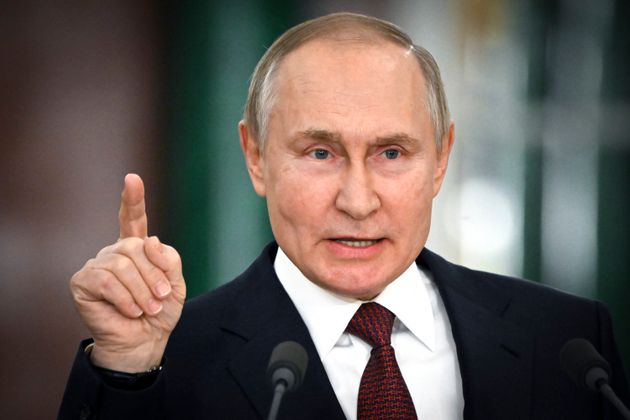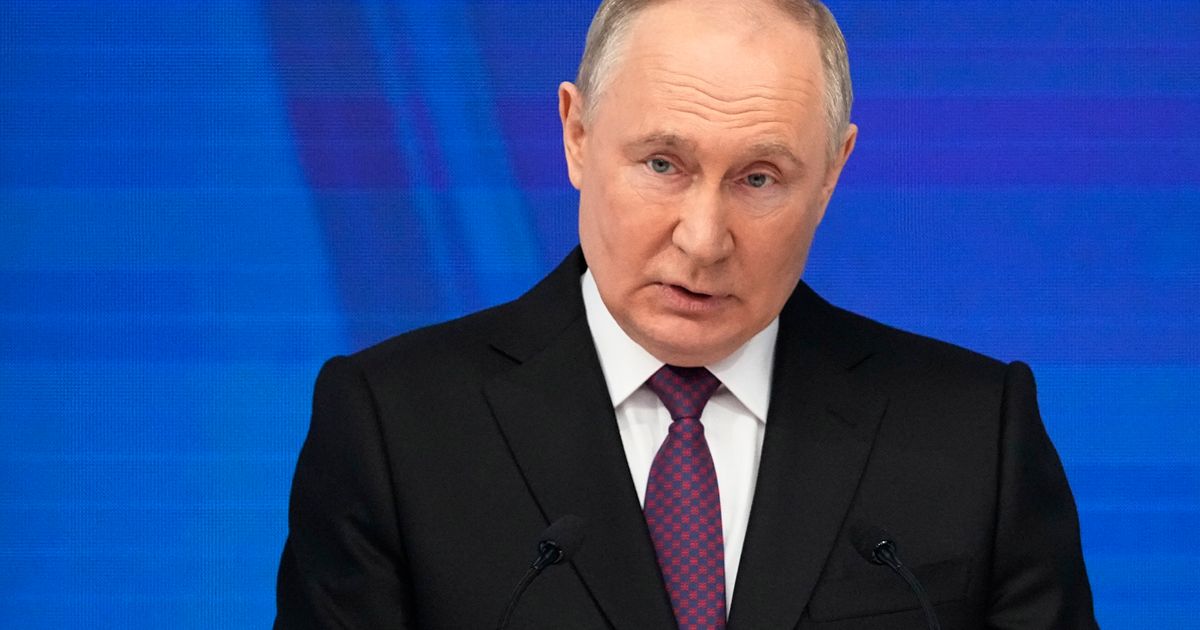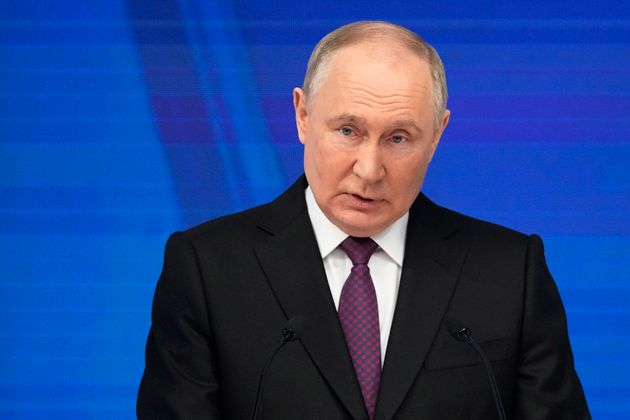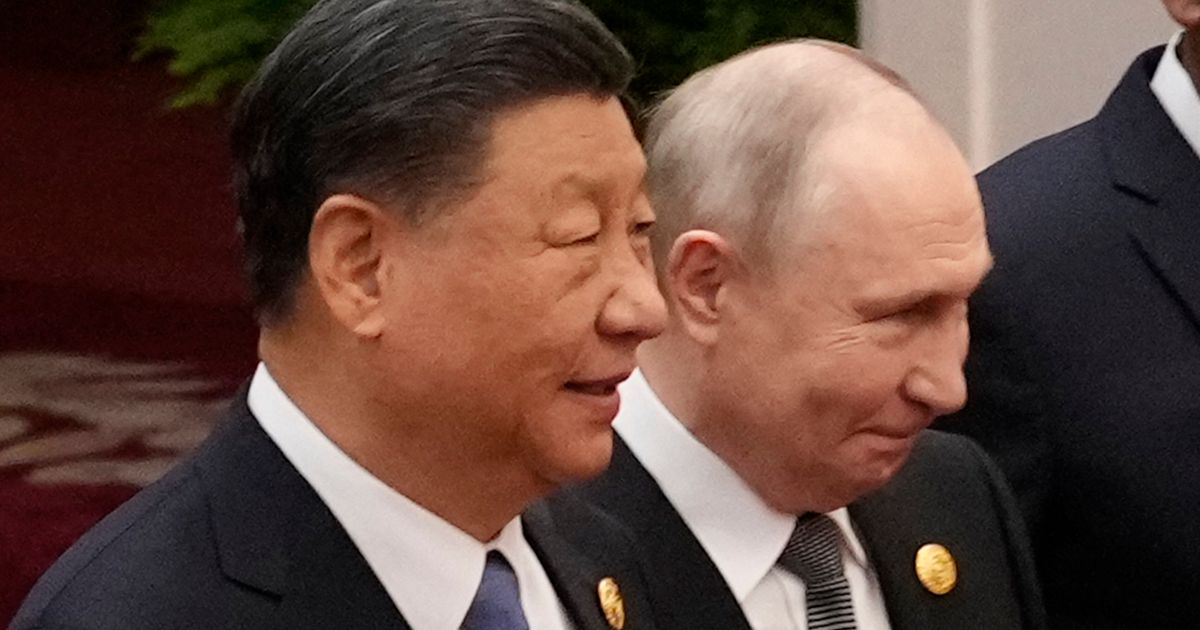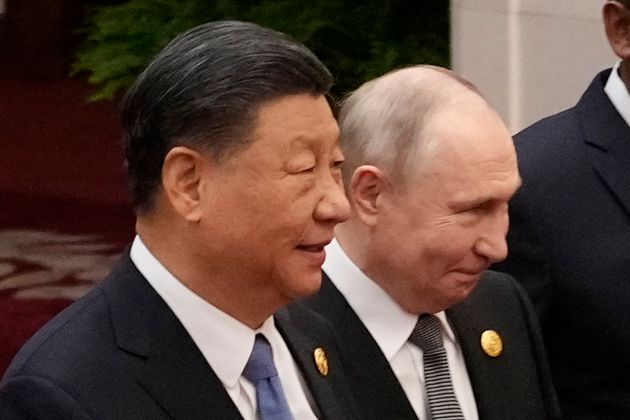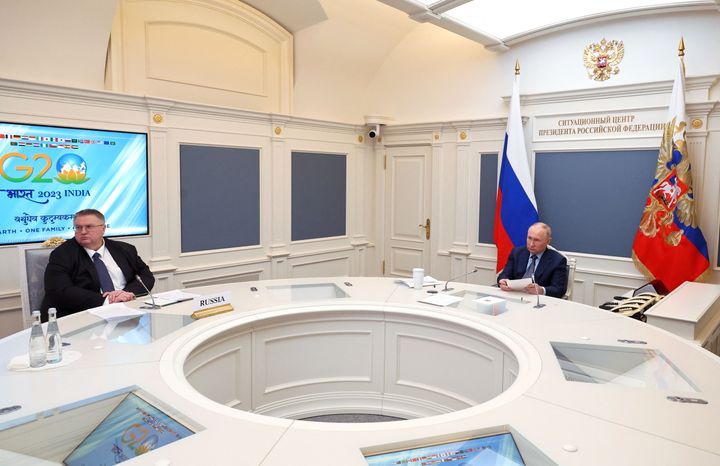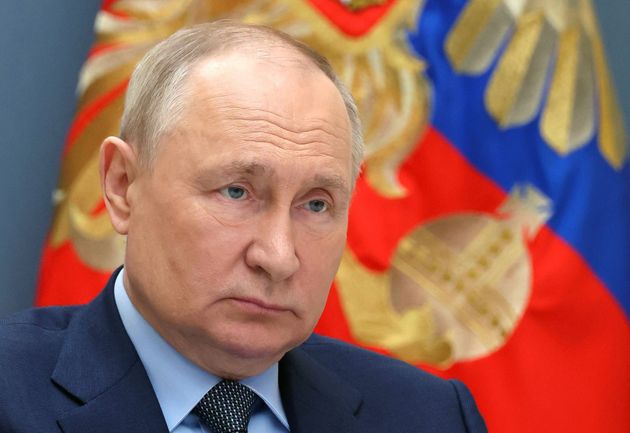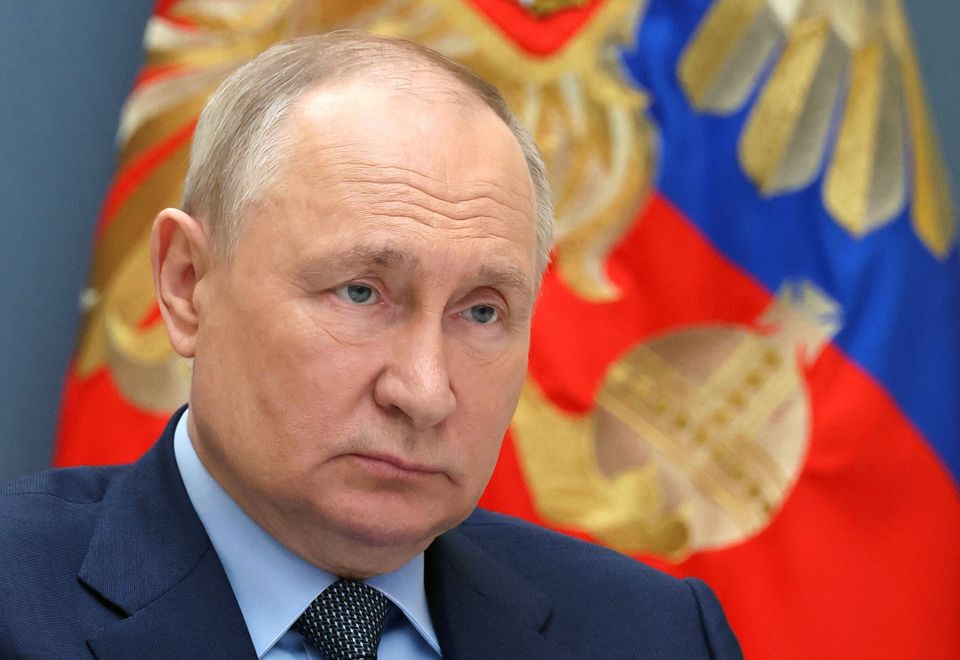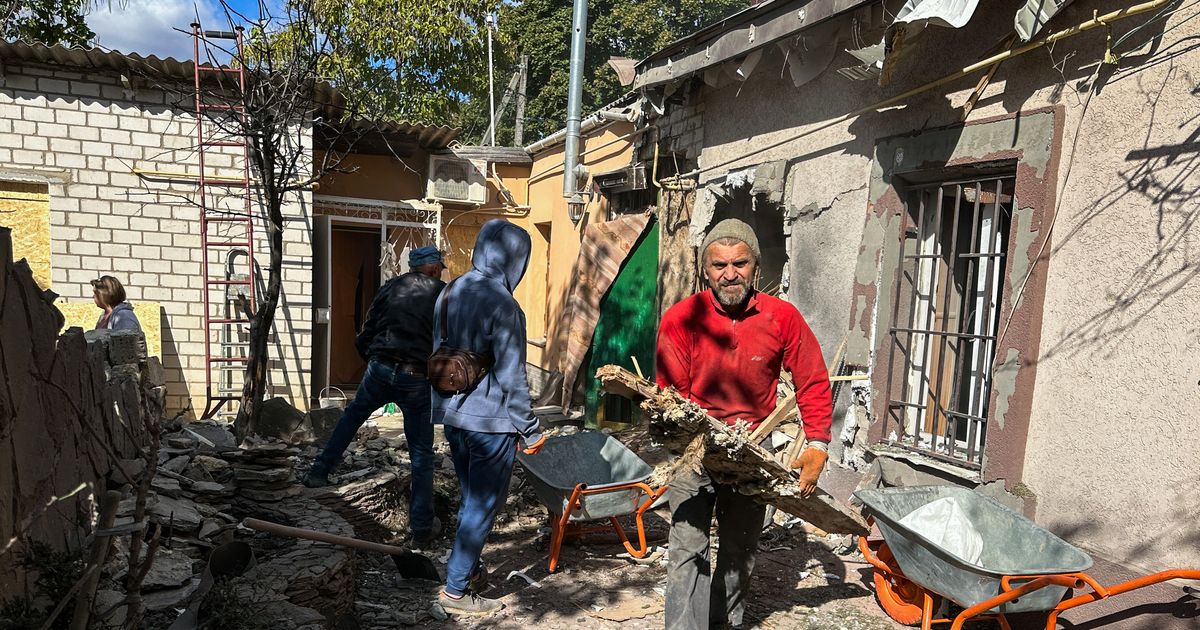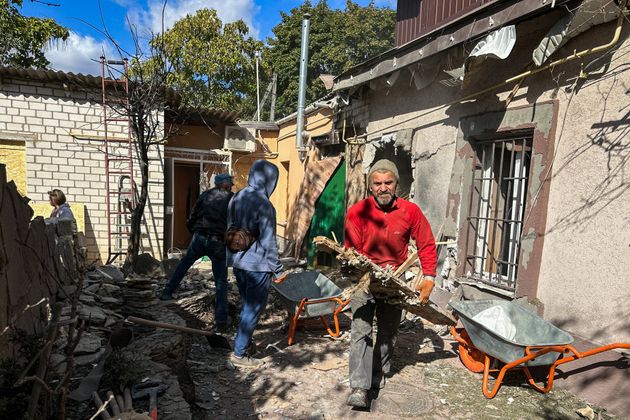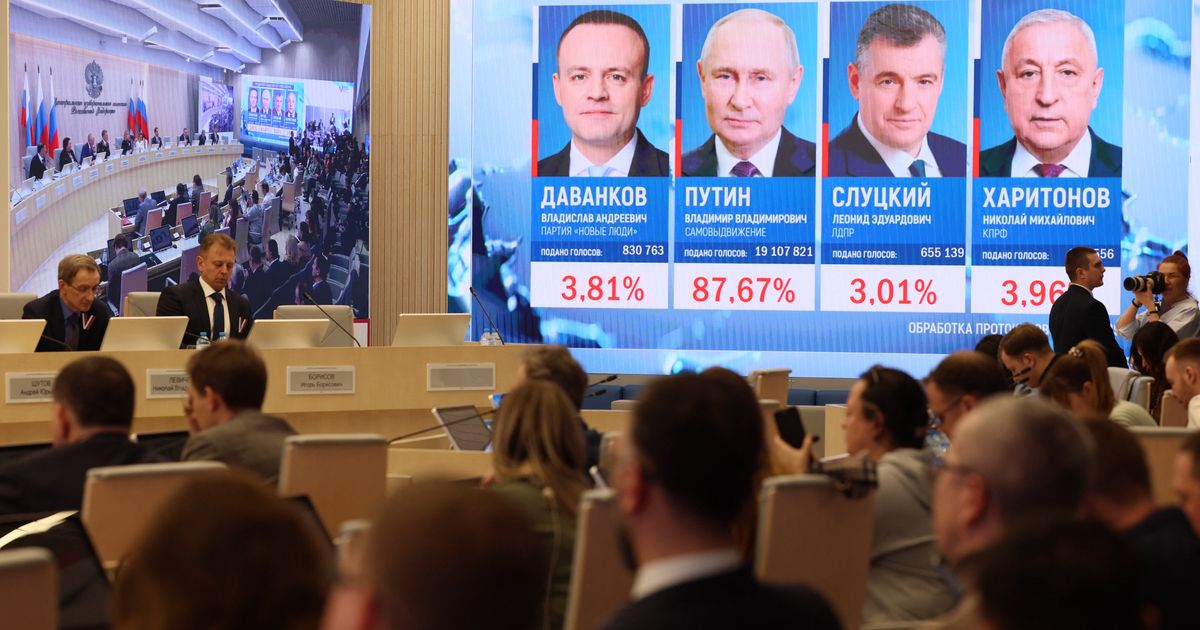
Vladimir Putin has been re-elected Russian president after winning a landslide victory in the country’s election.
In a result that was a surprise to absolutely no one, he won another six-year term in charge after receiving nearly 88% of the vote.
Advertisement
The three other candidates – Nikolai Kharitonov, Vladislav Davankov and Leonid Slutsky – were predictably miles behind, with none of them managing to poll more than 4%.
It will be his fifth term as president of Russia, having first been elected to the post in 2000. He was also the country’s prime minister between 2008 and 2012.
Foreign secretary David Cameron dismissed the result by insisting the elections had not been “free and fair”.
He said: “The polls have have closed in Russia, following the illegal holding of elections on Ukrainian territory, a lack of choice for voters and no independent OSCE [Organisation for Security and Co-operation in Europe] monitoring.
Advertisement
“This is not what free and fair elections look like.”
But former Russian president Dmitry Medvedev, a close ally of Putin, took to X (formerly Twitter) shortly after the result was announced.
In a bizarre post, he said: “Congratulations to all Russia’s enemies on Vladimir Putin’s brilliant victory in the election of the President of the Russian Federation. And a thank you to friends for the support.”
The result was never in doubt because no candidates opposed to the war in Ukraine were allowed to stand.
Advertisement
One potential opposition candidate who did attract some popular support, Boris Nadezhdin, was barred from running a month ago.
Some voters did register their opposition to Putin’s regime by vandalising voting booths during the three-day election.
Footage emerged online of one woman pouring ink into a ballot box after voting, while there were also arson attacks at some polling stations.
Thousands of voters also took part in a “noon against Putin” protest at polling stations across the country and at Russian embassies around the world.

